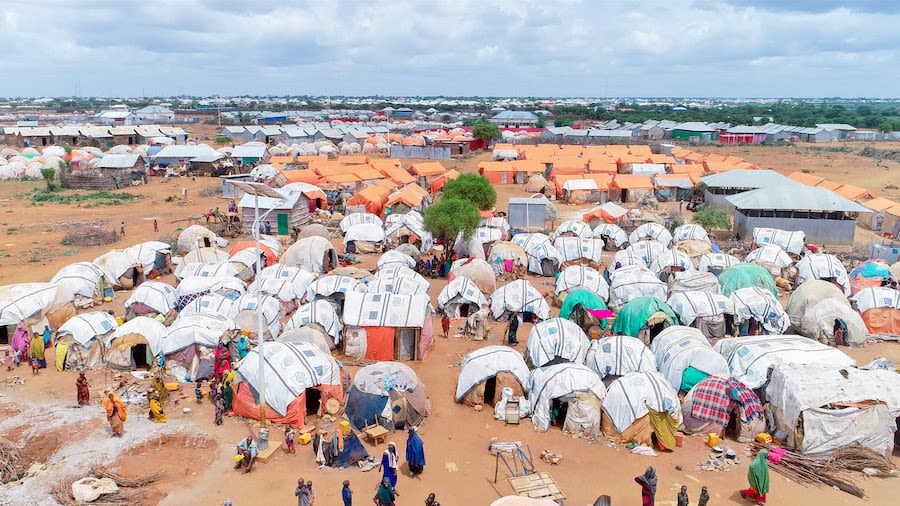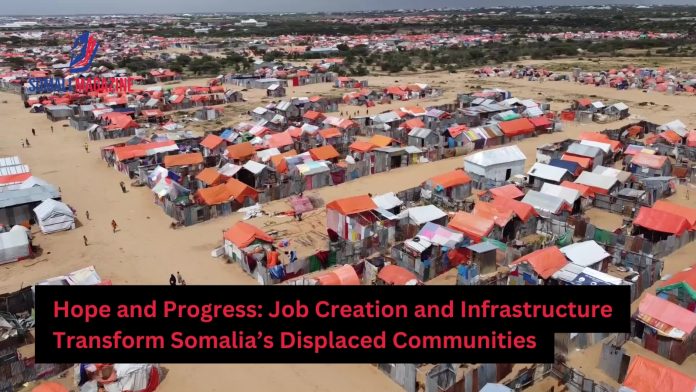Facebook Twitter Instagram Somali Magazine - People's Magazine
Somalia is witnessing a transformative wave of development, as new infrastructure and job creation initiatives breathe life into displaced communities and struggling local populations. Amid ongoing challenges from decades of conflict and recurring natural disasters, these programs offer a beacon of hope, fostering resilience and self-reliance for thousands of Somalis.
The initiatives, spearheaded by the Somali government in partnership with international organizations, aim to rebuild key infrastructure in areas heavily impacted by displacement and poverty. Roads, schools, healthcare facilities, and water systems are being constructed in regions such as Baidoa, Kismayo, and Hargeisa, providing essential services to communities long-neglected due to instability.
One of the standout projects is the construction of vocational training centers in major urban hubs. These facilities are equipping young people, including those displaced by conflict, with skills in trades such as carpentry, tailoring, and welding. The goal is to foster employability and entrepreneurship, helping individuals secure income and contribute to their local economies. Fatima Aden, a 22-year-old who fled her home in Lower Shabelle, is one of many success stories. After completing a six-month tailoring course in Baidoa, she launched a small business that now supports her family. “This training has changed my life. I never thought I could rebuild my future,” Fatima shared.
Job creation has also been a cornerstone of these efforts. The construction projects themselves are generating thousands of temporary employment opportunities, while the facilities they build lay the foundation for long-term economic activity. In Kismayo, for example, a large-scale road rehabilitation project has employed over 1,000 workers, many of whom are from displaced or impoverished backgrounds. Local businesses are seeing a surge in activity as workers and their families spend money on goods and services, creating a ripple effect of economic revitalization.

Displaced people are not the only beneficiaries. Local communities hosting large numbers of internally displaced persons (IDPs) are also gaining access to better services and opportunities, easing tensions and fostering cooperation. In Hargeisa, a solar-powered water supply system serves both IDPs and local residents, providing a sustainable solution to the area’s chronic water scarcity.
These programs are supported by a coalition of partners, including the United Nations Development Programme (UNDP), the International Organization for Migration (IOM), and the World Bank, alongside Somali authorities. Collectively, they are working to tackle the root causes of displacement while promoting long-term development.
However, challenges persist. Limited funding, fragile security conditions, and the immense scale of Somalia’s displacement crisis—exacerbated by ongoing drought and flooding—pose significant hurdles. According to the United Nations, Somalia is home to more than 3.9 million internally displaced people, many of whom live in overcrowded camps lacking basic necessities. Analysts emphasize the need for sustained support and investment to expand the reach of these initiatives and address the broader structural issues underlying Somalia’s humanitarian crisis.
Somalia’s Prime Minister Hamza Abdi Barre has acknowledged the critical role of these efforts in rebuilding the nation. “Infrastructure and job creation are not just about development—they are about restoring dignity and hope. We are committed to ensuring that every Somali, especially those displaced by conflict and disasters, has the opportunity to thrive,” he stated during a recent visit to a construction site in Baidoa.
As Somalia continues its journey toward recovery, these transformative initiatives underscore the importance of collaboration and innovation in overcoming complex challenges. They serve as a reminder that even in the most difficult circumstances, opportunities can be created to empower individuals and strengthen communities.

